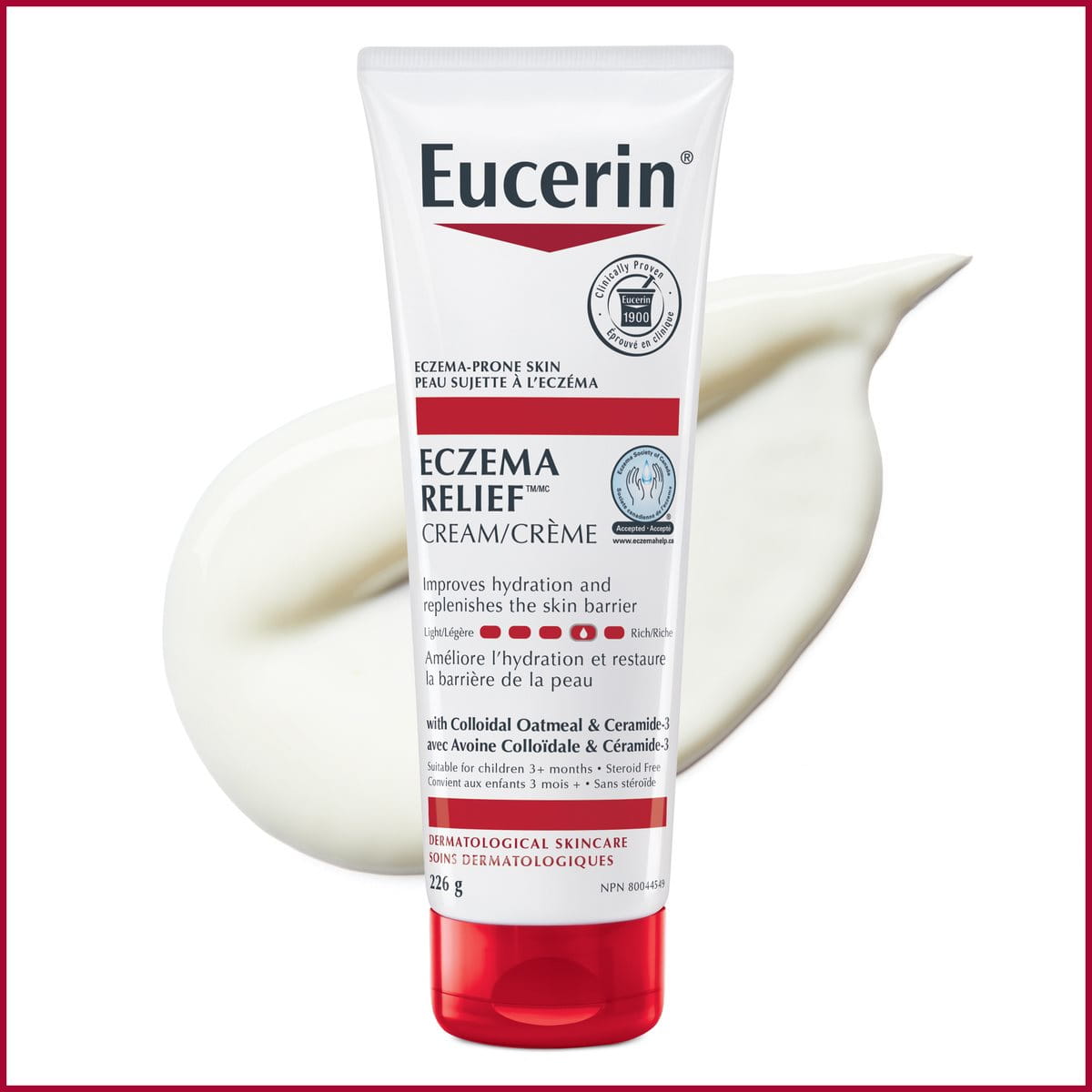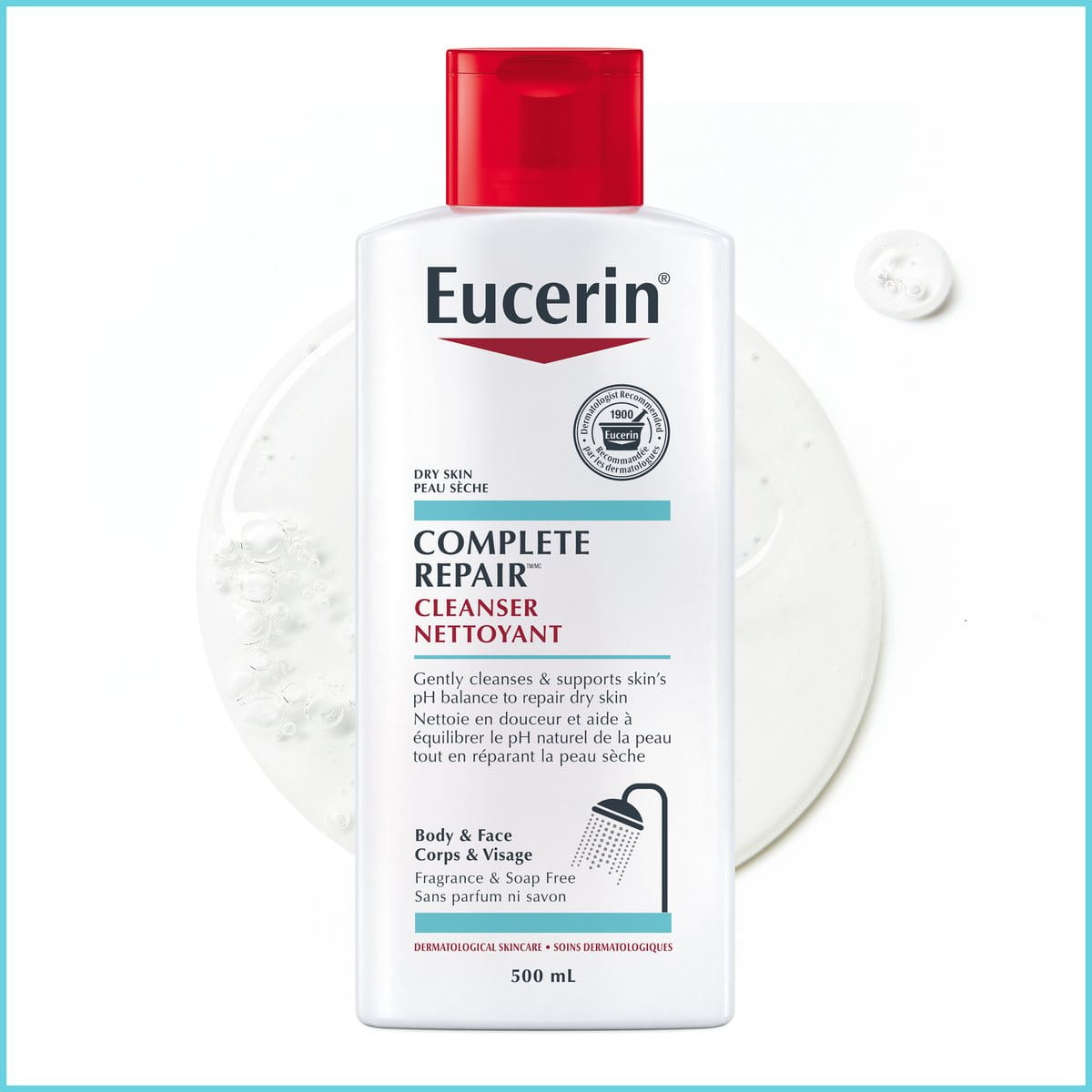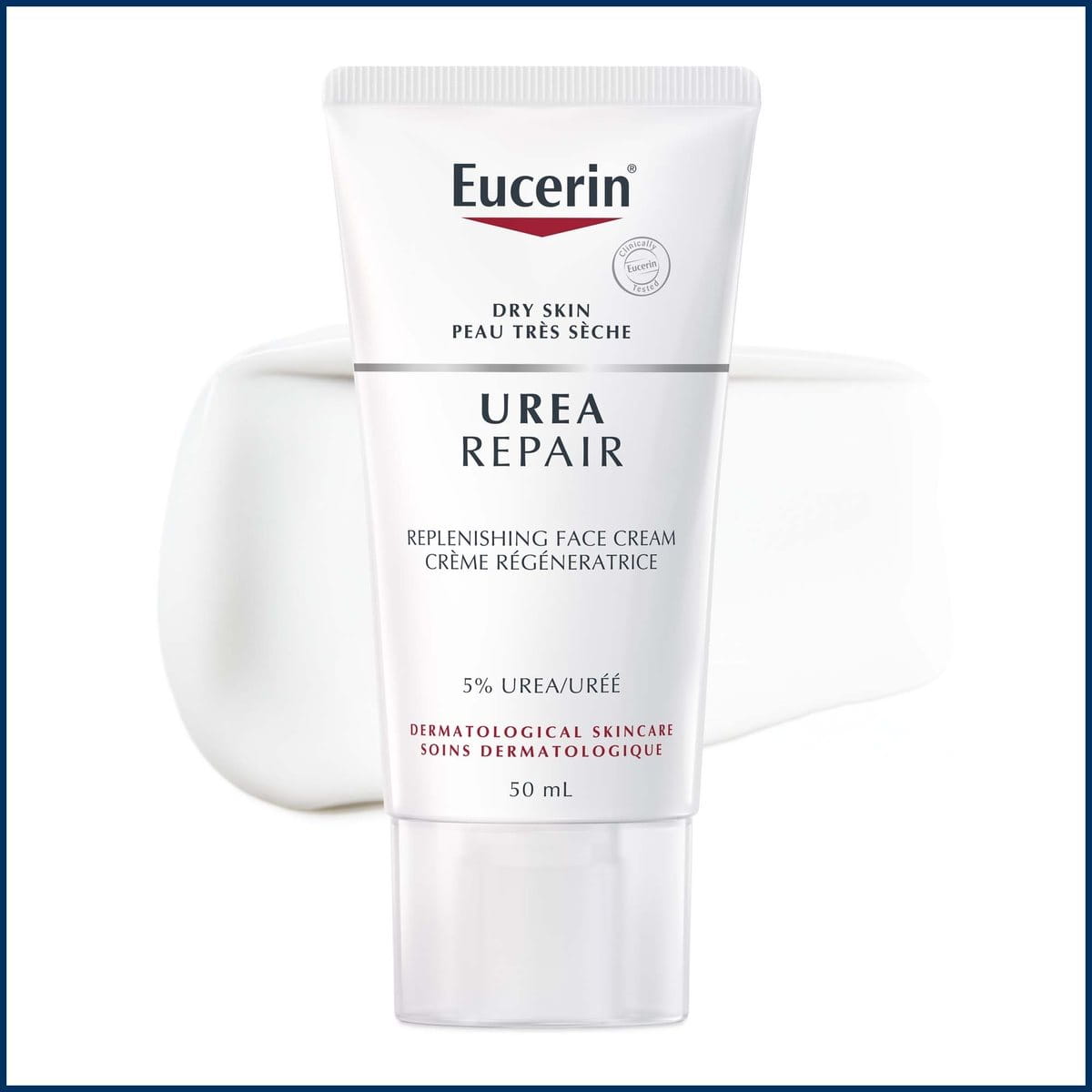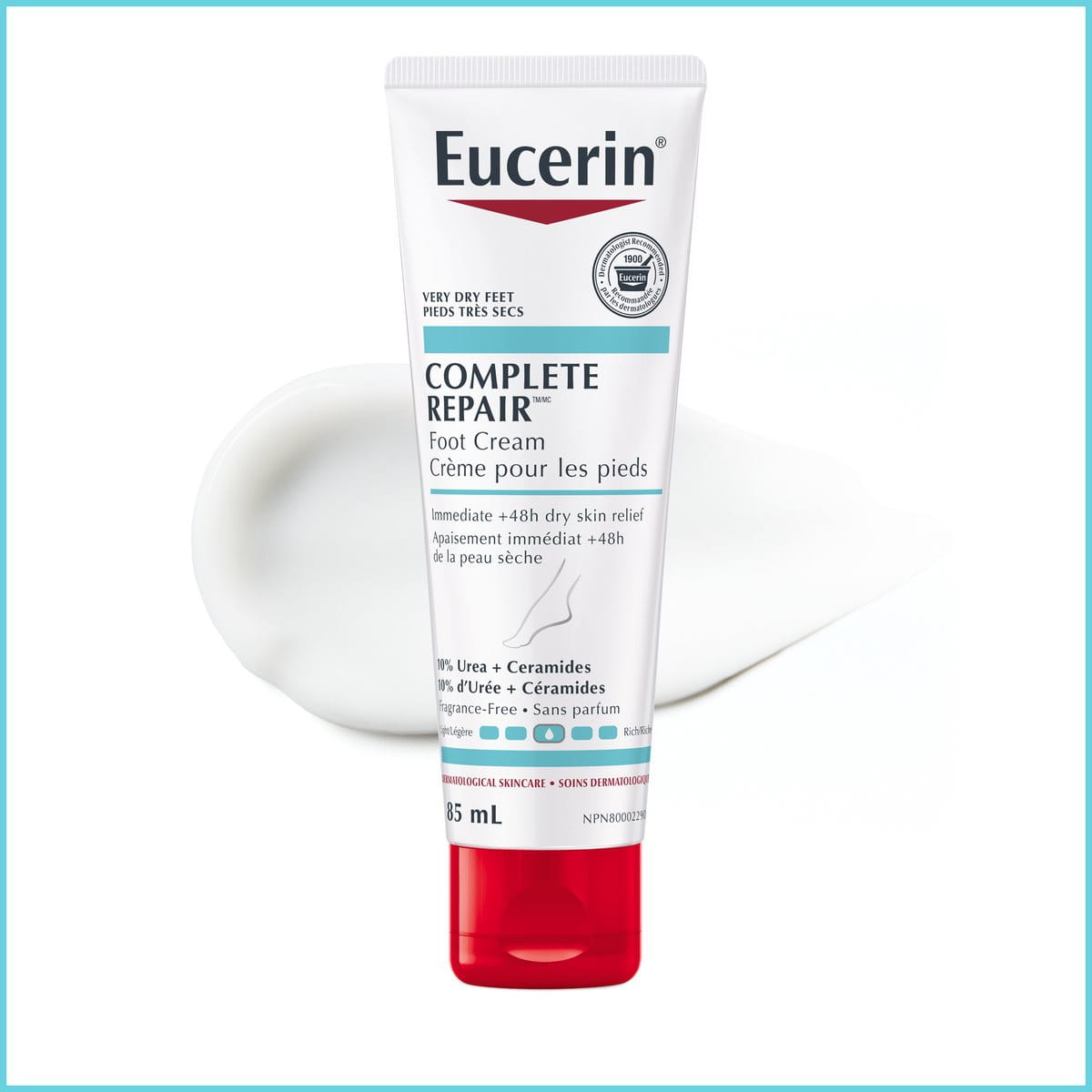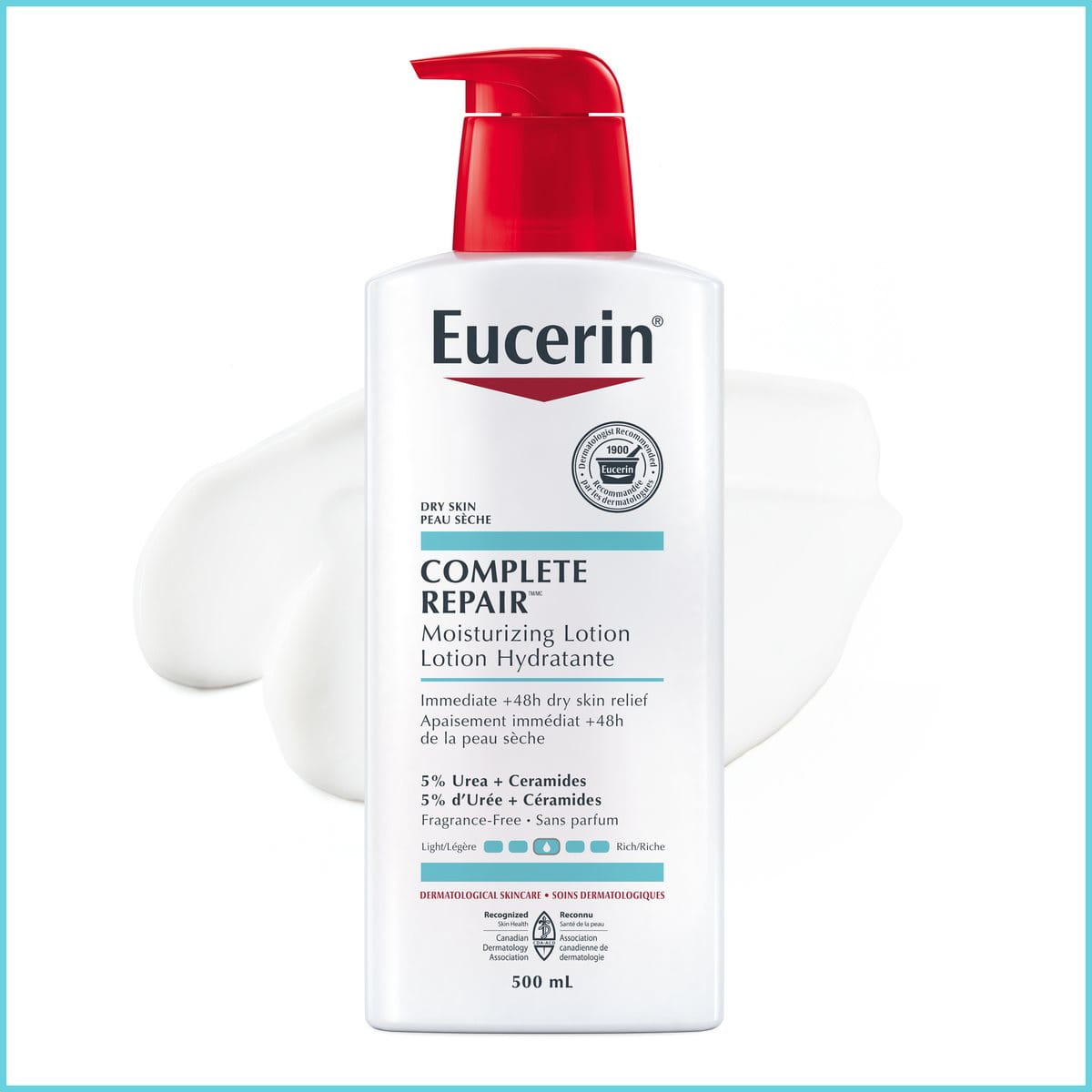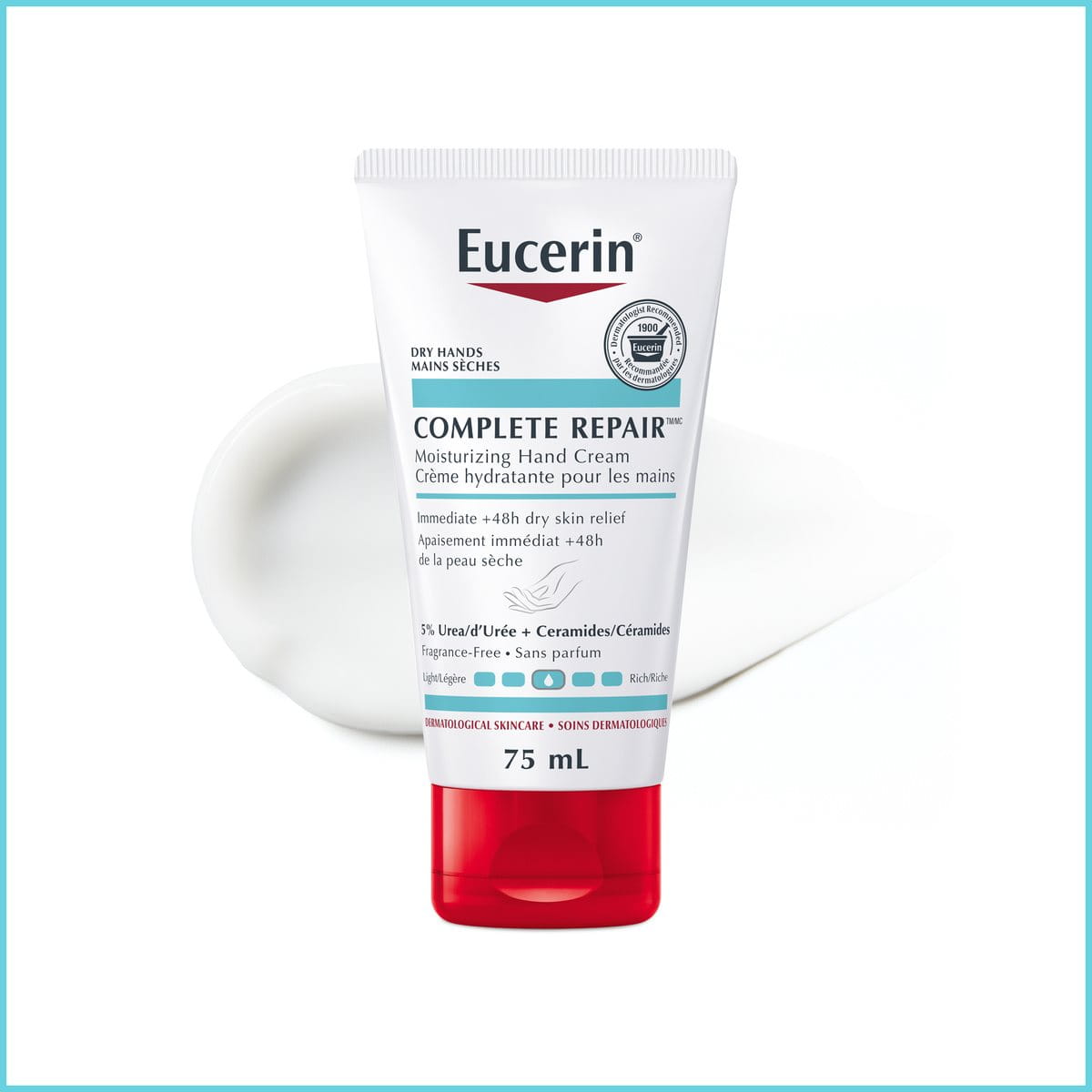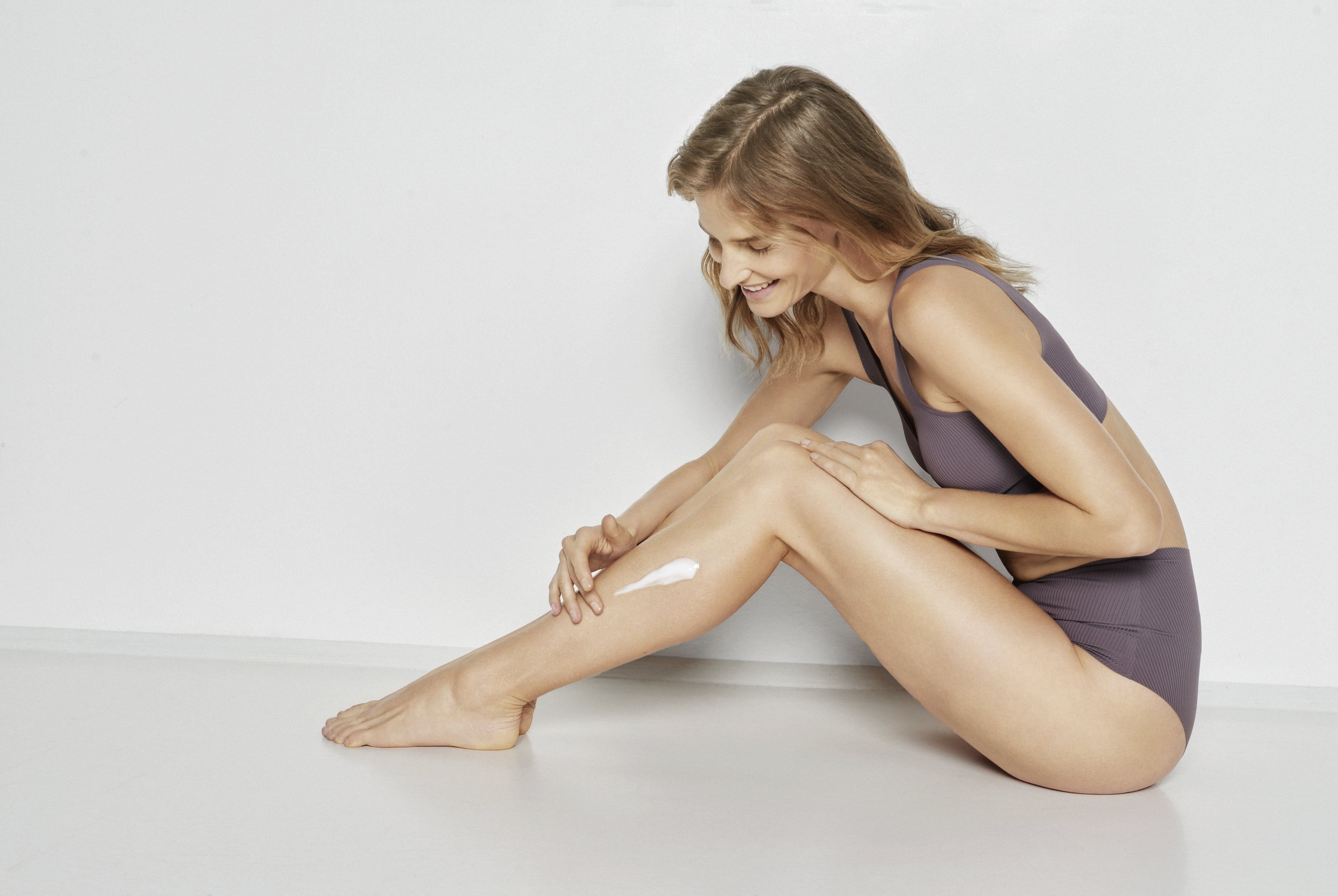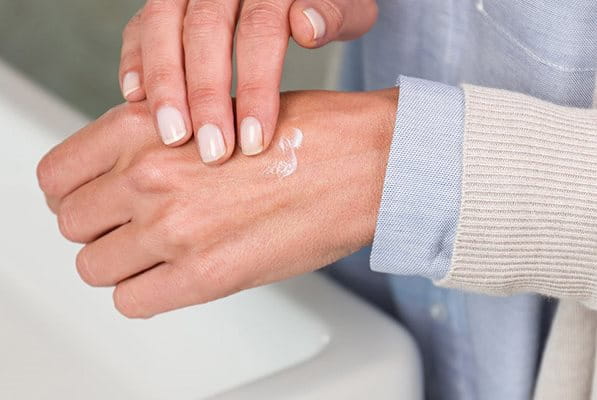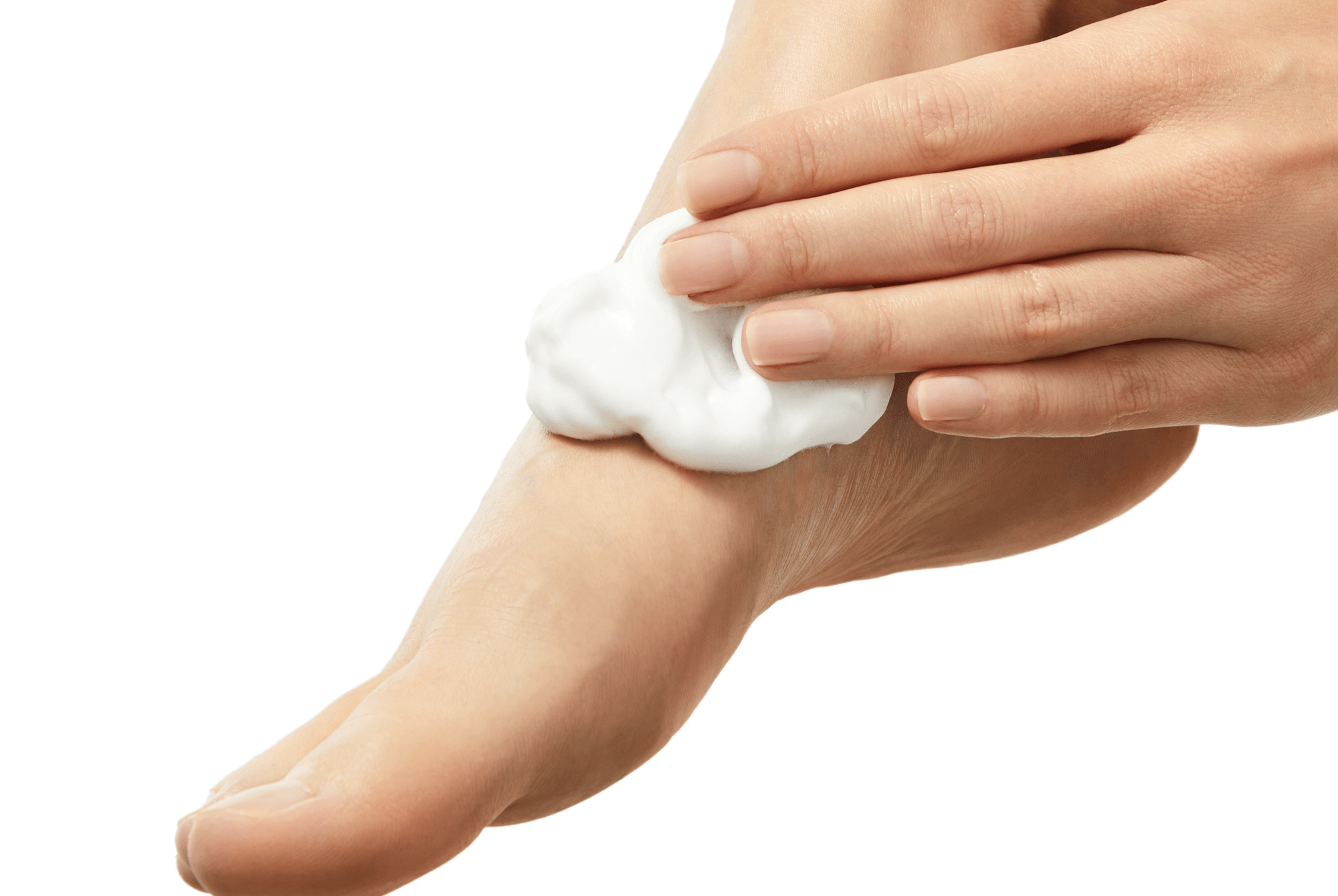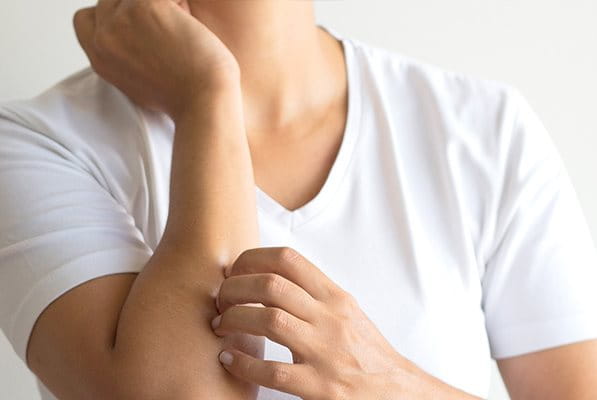Dry skin on the body is a common skin complaint, with over 40% of visits to dermatologists relating to skin dryness. The skin is one of the body's most important organs. It gives us our sense of touch, regulates body temperature, and protects against infections. However, dry, flaky skin can be uncomfortable and irritating if severe.
Dry skin also cannot function as well as normal, hydrated skin, with an increased risk of sun damage, premature skin aging and, if left untreated, dry skin may crack or bleed, leaving wounded skin exposed to bacteria that could cause an infection. In this article, learn about the symptoms and causes of dry and very dry skin on the body, as well as how to treat it effectively.
Signs & symptoms of very dry skin
Dry skin can occur all over the body, although the most commonly affected areas include the hands, feet, face, elbows, legs, scalp and arms. Often, dry skin patches develop in areas which are more exposed than others such as exposure to cold air in winter, although dry skin can be caused by skin conditions such as eczema and psoriasis.
Severe dry skin may feel extremely tight, scaly or leathery and often itchy. For extremely dry skin, the affected areas may feel rough, cracked and sore. However, it may not be obvious that dryness is the cause of these skin symptoms depending on the severity of the condition and the area of the body affected.
Mild dry skin
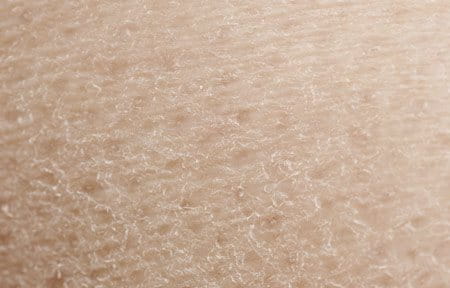
At first, you may only notice a light tightness or mild roughness on your skin. As the skin loses further moisture, the patches of dry skin will become rougher and may have a flaky or scaly appearance. These dry, flaky skin patches are likely to itch due to the dryness and be uncomfortable.
Severe dry skin
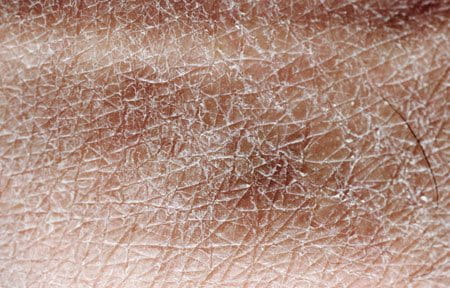
Dry, scaly skin
Large, scale-like flakes are the result of the loss of the outer layer of the epidermis. Skin looks dry and cracked and starts to peel, leading to a scaly appearance. The scales then redden and itch. Since scaly skin can be quite visible, especially on areas like the hands and face, scaling skin can impact a person's confidence. Speak to a dermatologist for advice on scaly skin.
Dry skin on hands
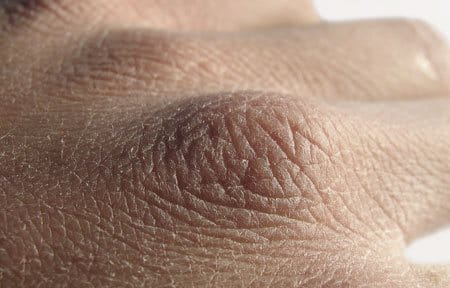
Dry skin on the hands, including flaky and cracked skin on the knuckles, fingers and palms is particularly common, especially if you are washing your hands frequently or more than often or are using hand sanitizer.
Dry skin on feet
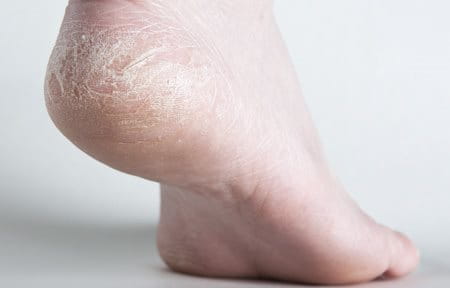
Dry skin on the feet, in particular dry skin patches in between the toes and around the heel are also common. This is because there are various parts of the feet which are weight-bearing areas, such as the balls of our feet, as well as areas which often experience friction such as the ankles and soles. This friction and pressure can cause damage, causing dry, peeling skin to form. Severe dry skin on the feet can become cracked and scaly in places, leading to cracked heels which is often painful. If you notice these symptoms, you should see a dermatologist for help.
Dry skin conditions
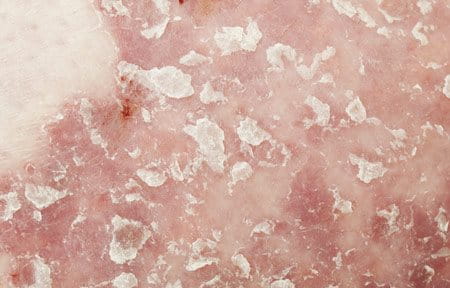
Very dry skin on the body can also be related to certain skin conditions:
- Xerosis is the medical term for dry skin. Most people will have experienced xerosis at some point in their life, although more severe dry skin cases are often long-lasting and require you to tailor your routine to your skin’s needs.
- Atopic Dermatitis and Psoriasis are also linked to dryness. Skin that is affected by these conditions typically reddens, becomes flaky, and feels very itchy.
- Discoid eczema causes circular dry skin patches on the body. They typically appear on the torso and lower body and do not usually affect the facial or scalp areas.
- Metabolic conditions, such as diabetes mellitus and kidney disease, can also increase the risk of dry skin on the body.
- Sensitive skin is a common reason for dry skin on the body, it commonly comes from dehydration, but some people’s skin can be naturally sensitive.
What causes very dry skin?
There are many causes of dry skin on the body, as well as contributing factors which can worsen symptoms of dryness. These range from environmental influences and inadequate skincare to medical conditions like Psoriasis and Atopic Dermatitis.
There are also internal influences which affect our skin’s ability to stay hydrated and hold onto moisture.
External causes of dry skin

Dry, rough and tight skin can be caused by a breakdown in three main areas of moisture control: a broken surface barrier caused by a deficiency of skin lipids, a dehydrated stratum corneum (upper layers of the skin) brought about by a decrease in natural moisturizing factors, and poor moisture distribution in the lower layers of the skin.
- External factors cause the skin’s natural barrier function to become compromised, resulting in increased moisture loss through the skin.
- A breakdown in the skin’s surface barrier due to vital lipids being washed away prevents the skin from trapping moisture in, causing the rate of moisture lost to increase.
- Finally, when the dryness progresses down into the deeper skin layers, the passage of water within the deeper tissues is reduced as important moisture channels become compromised.

Environmental causes of dry skin:
There are various external triggers which can cause dry and very dry skin on the body:
- Harsh weather conditions – hot, cold and dry air can disrupt the skin's barrier function, causing skin to lose moisture and dry out. This is particularly common in winter when cold, dry air and dropping humidity levels can dry out the skin.
- Seasonal changes – the symptoms of dry, flaky skin often worsen during winter and summer, when increases in hot or cold air can lead to the skin becoming dehydrated.
- Ultraviolet (UV) sunlight - UV light can increase the rate of skin aging. As skin becomes more prone to dryness as it ages, this makes it more likely for skin to dry out and become scaly, chapped and cracked.
- Chlorine - dry skin can occur after coming into contact with chlorine in a swimming pool.
Skincare factors that affect skin hydration:
- Washing too much - Frequent washing, long, hot baths or showers and hand sanitizers can remove the lipids that make up the skin barrier, causing the skin to become dry, itchy and sometimes red in appearance.
- An inadequate skincare routine – it is important to follow a tailored skincare routine and use products that are suitable for dry skin, avoiding soaps and other skincare products that can strip away the skin’s natural lipids.
Internal factors that can cause dry skin

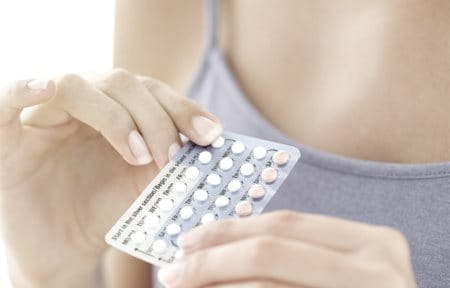

Genetic influences
The skin's moisture balance is also influenced by genetics. Our genes influence whether someone has oily skin, dry skin or another skin type. Although skin types are inherited, individuals will not necessarily have the same skin type as their parents. However, skin conditions like atopic dermatitis, Psoriasis, diabetes and ichthyosis often have a genetic link.
Medication
Dry skin is a side effect of many medications, including diuretic blood pressure medications which work by increasing the rate of water excretion from the body, as well as certain antibiotics and oral acne medications. Always check with a doctor or pharmacist if you are concerned that a medication may be contributing to your dry skin.
Hormonal influences
Changes in the levels of certain hormones, particularly estrogen and testosterone, can influence the skin's moisture and lipid levels. This is particularly noticeable after menopause, when the skin becomes dry due to a decrease in estrogen production. Dry skin may also occur during pregnancy due to hormonal changes, in addition to the extra demand of bodily fluid.
Diet
Like any other organ, the skin requires a range of important nutrients in order to function properly. These include unsaturated fatty acids and vitamins. Having a diet that lacks any of these can contribute to dry skin and make existing conditions worse.
Age
As the skin becomes older, the number of sebaceous and sweat glands in the skin decreases, resulting in a reduced ability to produce sweat and lipids. Similarly, the water content of the skin and its ability to hold moisture is also reduced. These factors lead to dryness and a loss of elasticity, which in turn contributes to skin ageing and the development of fine lines and wrinkles.
Contributing factors to very dry skin
In addition to the main causes of dry skin on the body that have been outlined above, there are several other factors that affect the severity of skin dryness. An awareness of these factors will help you to avoid them and thereby reduce the likelihood of developing severe dry skin.
Lack of effective dry skin treatment

When dry skin is not treated quickly, the severity of the dryness can increase. This can lead to disrupting the moisture network of the skin. When this happens, it’s essential to use a moisturizer that is clinically and dermatologically-tested to address this problem to treat dry, flaky skin effectively.
Sun exposure

Sun exposure damages your skin and hinders its ability to retain moisture; it also diminishes your skin's ability to replenish and repair itself, which can worsen dehydrated skin. To protect dry skin from sun damage, wear sunscreen with an appropriate Sun Protection Factor (SPF) that also restores missing moisturizing to replenish the skin and use as directed.
Some occupations can increase the risk of dry skin development due to constant sun exposure. It is also important that your sunscreen, and any other skincare products that are used on your dry skin do not contain irritating perfumes and colorants: dry skin, especially dry facial skin, is more prone to irritation than normal skin.
Dehydration
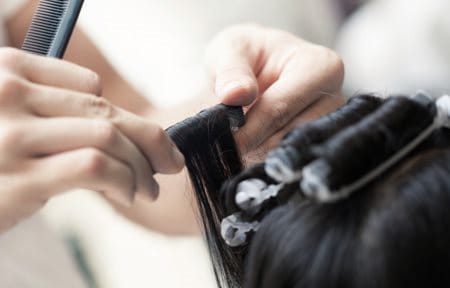
The skin receives its moisture via the body and is therefore dependent on the body’s water balance for keeping the skin hydrated and soft. When the body is dehydrated it reduces the supply of moisture to the skin, which slows down the natural flow of water through the skin.
This is how dehydration can contribute to the worsening of dry skin conditions, especially in elderly people who are prone to dehydration as the sensation of thirst diminishes with age.
Smoking
Cigarettes contain many toxins, such as nicotine, which may reduce blood flow. A decreased blood flow results in a decreased metabolic rate, causing the skin to age prematurely and dry out.
How to treat very dry skin
Dry skin is caused by a breakdown in the skin’s barrier function, which leads to the loss of moisture and a decline in the skin's water-binding capacity. Therefore, dry, flaky skin needs a skincare routine that does not cause any further deterioration of the skin barrier and replaces the missing natural moisture.
In addition, skincare for dry skin should include products that are suitable for the severity of dryness, depending on the person. For instance, atopic dermatitis in babies and young children may require specific products for treatment that differ from those tailored to adults with this condition. When choosing a skincare product for children, always check the age recommendation.
Cleansing dry skin on the body

Dry skin usually occurs when the skin’s surface barrier breaks down, therefore it is important that the cleanser you use is gentle enough not to wash away this natural, protective barrier. Eucerin Complete Repair Cleanser is a gentle and effective face and body cleanser that supports the skin’s pH balance. This can be used daily and will not strip away skin’s natural moisture barrier.
What is the best moisturizer for very dry skin?

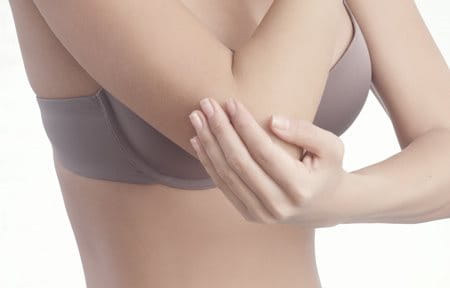
The primary aim of dry skin moisturizers is to restore the moisture balance in the upper layers of the skin (stratum corneum). Formulas with Urea and Sodium Lactate help to bind moisture into the stratum corneum helping to keep the skin soft, feeling plump, and hydrated.
The Eucerin Complete Repair range for dry skin contains clinically proven formulas with Urea, Ceramides, and other Natural Moisturizing Factors (NMFs) to lock in moisture and strengthen skin barrier, providing immediate and long-lasting dry skin relief in a range of soothing body creams and lotions, face and hand creams and a body wash. Eucerin Complete Repair Lotion gives very dry, rough body skin the daily care it needs.
Dry skin can occur anywhere on the body but appears most frequently in the exposed areas, i.e. the hands, feet, face, knees and elbows. The Eucerin Complete Repair range uses Urea, as well as other restorative ingredients, to address the above three areas of moisture loss in the skin to help rebalance the skin’s natural moisture levels:
- Firstly, the formula with urea and other water-binding natural moisturizing factors help to improve hydration in the stratum corneum.
- Secondly, it also includes Ceramide-3 and helps repair the lipid skin barrier to lock in more moisture.
- Finally, with Glyceryl Glucoside (a humectant), it acts to help to retain moisture in the upper skin layers.
Protecting dry skin against sun exposure
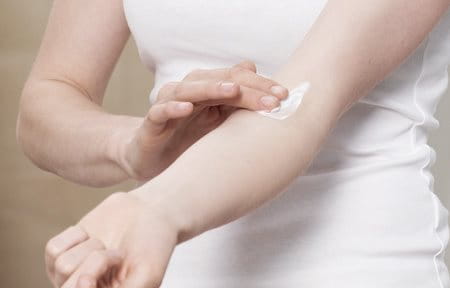
To protect dry skin from sun damage, it is advisable to reduce sun exposure by wearing protective clothing and sunscreen when going outdoors. Sunscreen for dry skin should also not contain any irritating perfumes and colorants, as dry skin is prone to irritation.
Eucerin sun protection products offer broad spectrum SPF 50 sunscreen protection, as well as an antioxidant complex, are appropriate for sensitive skin, and help protect against UV-induced free radicals and premature aging when used as directed.
How to help prevent dry skin
In addition to having a good skin cleansing and moisturizing routine, avoiding contributing factors that can worsen dry skin is essential for effective dry skin treatment.
To help prevent dry skin, it is recommended that you avoid using strong soaps that strip away natural skin lipids.
- Avoid dry air by spending less time outdoors in hot and cold weather, and by using a humidifier indoors when the heating is on. Air conditioning and central heating units indoors remove moisture from the air and, as a consequence, the skin can become dry.
- Reduce the time spent in hot water by having quick showers for between 5-10 minutes, instead of long baths. It is best to use warm, rather than hot water when washing and to avoid washing the face, as this can strip the skin of its natural oils.
- Use gloves when washing dishes and cleaning to help avoid hot water and strong detergents which can irritate dry skin. Also wear gloves while gardening as the soil can strip moisture from the skin.
- Wear clothes made of natural materials, like cotton and silk, that do not irritate the skin. While wool is natural, it may cause skin irritation and is best to be avoided for those with dry, itchy skin.
- Use a laundry detergent which does not contain any dyes or perfumes as these can remain on the clothes after washing and irritate dry skin, especially sensitive skin.
- Use beauty and skin products that do not contain soap, perfumes or colorants to avoid irritating dry skin.
- Ensure that you drink enough water. Our skin is dependent on the body's water balance. It is especially important that the elderly do this, as they are more prone to dehydration.
Our brand values

We deliver a holistic dermo-cosmetic approach to protect your skin, keep it healthy and radiant.

For over 100 years, we have dedicated ourselves to researching and innovating in the field of skin science. We believe in creating active ingredients and soothing formulas with high tolerability that work to help you live your life better each day.

We work together with leading dermatologist and pharmacist partners around the world to create innovative and effective skincare products they can trust and recommend.
The information provided herein is not intended to be medical advice. Nor is it intended to treat the underlying skin disease or condition. The information is provided solely to:
1. Moisturize, soften and smooth dry skin
2. Improve the appearance of the skin
3. Achieve healthier-looking skin
